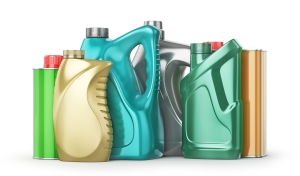Assessing Regulatory Requirements For Lubricant Oils Business In Kenya
In recent times, the East African region has become a key export destination for lubricants and petroleum products, thanks to increased industrial activities and a growing middle class.
The surge demand has led to the need for healthy competition and quality assurance.
Establishing Standards and Policies
To ensure fair competition in the importation of base oils, additives, and finished lubricants, Standards Bureaus in East African countries have played a crucial role. Kenya, for instance, established the Kenya Bureau of Standards (KEBS) in 1974.
KEBS has been at the forefront, certifying all goods entering the country and contributing to the region’s standards.
Divisions Within KEBS
KEBS operates with various divisions, including Standards Development, Quality Assurance, Testing and Metrology Services, and Finance and Administration. These divisions work together to uphold standards in the industry.
Policy Formulation and Oversight
The National Standards Council, responsible for policy formulation, oversees the daily administration and financial management of KEBS.
Minimum quality standards are set in collaboration with industry stakeholders such as the Energy Regulatory Commission, Petroleum Institute of East Africa, National Environmental Management Authority, Kenya Revenue Authority, and Oil Marketing Companies.
Technical Committee’s Role
A technical committee, composed of industry stakeholders, aids in standards development. KEBS reviews these standards, turning them into policies that guide inspections.
PVoC Program and Certification
Exporters and importers must ensure their products comply with set standards. The Pre-Export Verification of Conformity to Standards Programme (PVoC) in Kenya mandates obtaining a Certificate of Conformity (CoC) to maintain acceptable standards.
Inspection Process
Importers submit products to KEBS-appointed inspection agents. Successful verification results in a CoC. Consignments shipped without prior inspection may undergo destination inspection, subject to penalties and bonds.
Verification Agents
KEBS collaborates with verification agents like Intertek, SGS Kenya, and Bureau Veritas to ensure compliance. These agents operate the PVoC program in various regions, extending KEBS’ reach globally.
Import Standardization Mark (ISM)
Since 2015, KEBS introduced an additional regulation requiring imported finished products to bear the Import Standardization Mark (ISM) sticker. This sticker, issued by KEBS, is crucial for customs clearance.
Random Inspections
To ensure adherence to established rules, KEBS conducts random inspections, even after initial clearance. Suspected counterfeit products may lead to raids on warehouses.
In summary, KEBS plays a pivotal role in regulating the lubricants industry in Kenya, ensuring that products meet established standards and promoting fair competition. The certification process and collaboration with verification agents contribute to a robust system that safeguards the interests of consumers and the industry as a whole.
Importers submit products to KEBS-appointed inspection agents. Successful verification results in a CoC. Consignments shipped without prior inspection may undergo destination inspection, subject to penalties and bonds.



